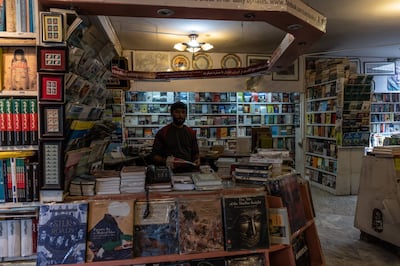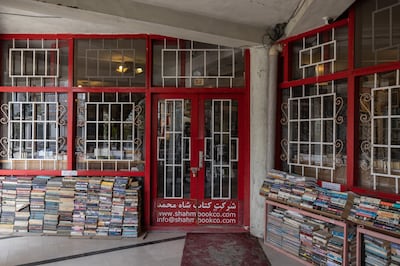Almost twenty years after a book about an Afghan bookseller became an international bestseller, the celebrated protagonist is today in London seeking asylum.
In the spring of 2002, after the Taliban had been overthrown by the US military and its allies, Norwegian journalist Asne Seierstad spent four months living with Kabul bookshop owner Shah Muhammad Rais and his family.
Penning her experience in the non-fiction work, The Bookseller of Kabul, the account was a moving portrait of an Afghan family navigating the sometimes contradictory tensions between cultural conservatism and the desire for political freedom.
Two decades on, following the Taliban’s resurgence to power in August, Rais is now waiting for his asylum case to be processed after arriving at a UK airport in September, according to UK newspaper The Guardian.
Currently living alongside other asylum-seekers in a Home Office hotel, the 68-year-old said the UK was the “only door open” for him to seek safety from the hard line group in Afghanistan.
Rais is not thought to be part of the approximately 15,000 people evacuated from Afghanistan by the UK government under the Afghan Relocations and Assistance Policy last summer.

At least half of those who were evacuated in August are still living in bridging hotels across the country while they wait for permanent housing.
The government’s new Afghan Citizens Resettlement Scheme opened in January under the pledge to resettle up to 20,000 people who are at risk, with 5,000 in the first year.
Having established his bookshop, Shah M Book Co, in 1974, Rais has endured many of the turbulent periods his country has faced over the past half a century, including the Taliban’s first foray into government in the 1990s, which saw piles of his books being burned in the street.
Back then, Rais defied authorities by hiding most of his stock — almost ten thousand books — in attics all over Kabul and kept his store open. It later opened online.
Having withstood the Taliban’s crackdown once before, he is less optimistic of the shop’s future this time.
Between the country’s economic crisis, social restrictions and the mass migration of a large proportion of Afghanistan’s book-reading residents, Rais says book buyers are now few and far between.
Nevertheless, he plans to keep his shop open as long as the Taliban doesn’t ban or destroy it and has already found hiding places in neighbouring Iran and Pakistan for some of his books.
When The National spoke with the bookseller last September, he said he had "big plans" to "digitalise the whole store". He said he had started to reprint rare and hard-to-find books and was filing others as PDFs.
"I want to make sure history is preserved,” said Rais.

The Taliban are not the only political entity to threaten the bookseller's life and livelihood. He was twice imprisoned during the Soviet era, during which time he says he experienced torture, including sleep deprivation and being forced to live in freezing conditions.
Despite living through successive repressive regimes, the civil engineering graduate continued to heroically protect and spread his love of books.
His famed store is thought to stock the largest collection of books about Afghanistan under one roof but Rais’s love of classics means his shelves have also included a wide-range of literary works by the likes of William Shakespeare, Ernest Hemingway, Leo Tolstoy and Rumi.
The bookseller said during Afghanistan’s relatively liberal inter-Taliban years between 2002 and 2020 he sold more than 15,000 copies of European and US literature.
His diversity of stock reflects his desire to showcase a range of opinions and narratives on historical events.
“I am on the side of sincerity,” Rais told The Guardian. “The Soviets put me in jail for collecting decrees of Mohammed Omar and other newspapers I obtained in Pakistan. I said to the judge: ‘Tomorrow we will need these papers — to understand your enemies.’”
If his asylum application is successful in the UK, the book lover wants to open an Afghan reading room at the British Library. He is currently writing a book on Afghan land and culture and says his dream is to open a multicultural bookshop for people from central Asia.







